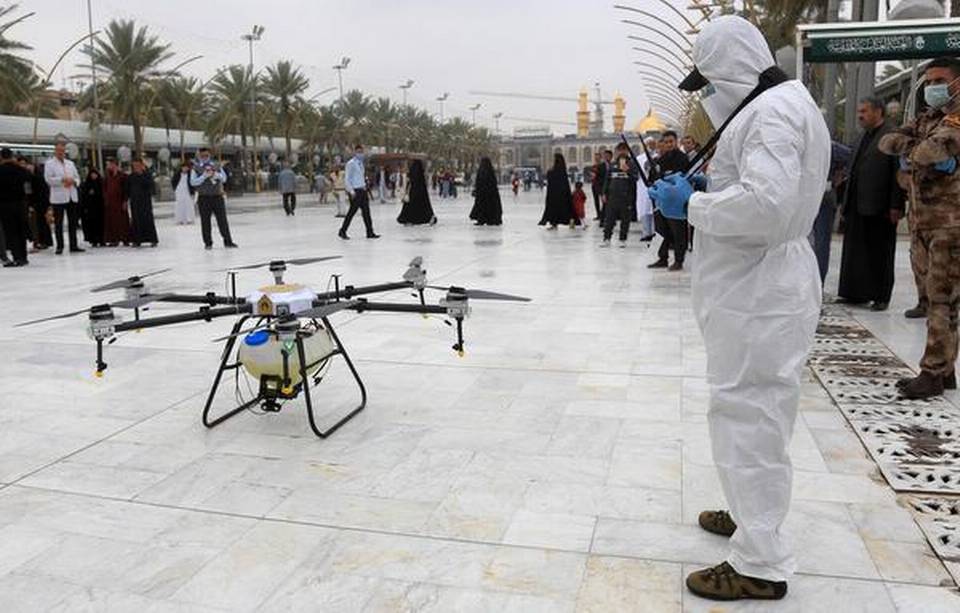
There are no shisha pipe sessions, warm greetings, bustling streets or mosque prayers, instead these have been replaced by drones in the sky broadcasting public health warnings and asking people to remain indoors and to stay calm.
According to thehindu.com, the coronavirus has turned life upside down in Gulf societies where more than 800 cases of Covid-19 have been recorded so far across the six nations of the Gulf Cooperation Council (GCC). Fortunately, to date, there have been no deaths.
Facing a mounting public health threat, Saudi Arabia, the UAE, Kuwait, Bahrain, Qatar and Oman have taken drastic measures to combat the pandemic. In recent days, drones in the skies are sounding messages in multiple languages urging people to return to their homes.
Residents in the Omani capital of Muscat have talked of much “fear and panic” over what many of them have termed “Corona phobia”, at a time when a small bottle of disinfectant is in almost everyone’s pocket or bag.
In countries where being tactile with others is common practice, they said many people have stopped shaking hands or kissing each other on the cheeks, a common greeting across the Arab world.
In Saudi Arabia, 60-year-old Abu Abdulrahman said he felt awkward about the rapidly changing social norms. “Do I shake hands and kiss or do I not? I don’t know,” he said. “I try not to do that, but I get embarrassed. What if the other person puts their hand out first?” Meanwhile, both the UAE and Qatar have advised their citizens to stop the traditional “nose to nose” greeting, with Abu Dhabi instructing residents that a wave would suffice.
Measures to combat the spread of the virus have also impacted the way many Muslims in the Gulf worship. After Saudi Arabia suspended the “umrah” year-round pilgrimage, it advised residents against praying in mosques if they have any symptoms of the virus. Kuwait has banned all mass prayers, an unprecedented move. “Pray at home, pray at home,” an imam preached.
For visual information

